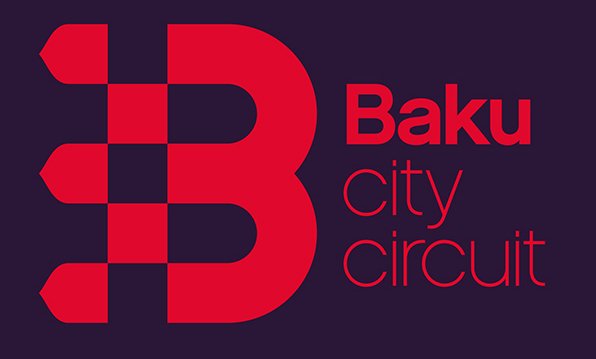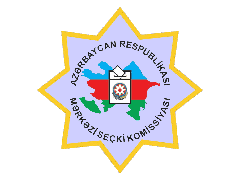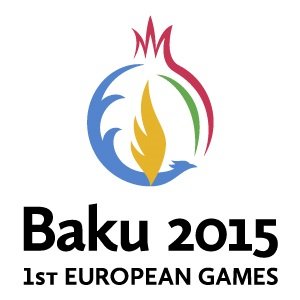NEWS
-
The Embassy of the Republic of Kazakhstan in the Republic of Azerbaijan has hosted a presentation of the art album "Reading Abay", published with the support of TURKSOY in honor of the 175th anniversary of Abai Kunanbayev, as well as a ceremony of awarding medals.
At the ceremony, President of the International Turkic Culture and Heritage Foundation Gunay Afandiyeva was awarded with a medal "Abai 175 years" by the Secretary General of TURKSOY Dusen Kaseinov.
At the same time, Gunay Afandiyeva presented Dusen Kaseinov postage stamps issued by the Foundation in Spain in honor of the anniversaries of two great figures of the Turkic world: the 175th anniversary of the significant poet of Kazakhstan Abai Kunanbayev and the 135th anniversary of the outstanding Azerbaijani composer Uzeyir Hajibayli.
In her remarks, Gunay Afandiyeva noted that Abai Kunanbayev left a bright mark in the history of not only the Kazakh people, but the entire Turkic world as a whole. The President of the Foundation also emphasized that one of the main priorities of the International Turkic Culture and Heritage Foundation is the study, research, protection and promotion of the heritage of the genius personalities of the Turkic world on the world stage.
Along with the heads of Turkic Cooperation Organizations, the presentation was attended by the Ambassador of Kazakhstan to Azerbaijan Serzhan Abdykarimov, as well as representatives of scientific and creative circles of Azerbaijan.
-

Famous photojournalist Reza Deghati has made an Instagram post on act of vandalism committed against the grave of outstanding Azerbaijani poetess Khurshid Banu Natavan in the city of Aghdam during its occupation by the Armenian armed forces.
“Why destroy the grave of a poetess?
The most important poetess of all time of Azerbaijan, Khurshid Banu Natavan, was born in the city of Shusha, 15 Aug 1832, descending from Panah Ali Khan and the founder of Shusha.
She was the Heir to the last ruler of Karabakh, and spent most of the family's wealth, to the humanitarian activities, including construction of the historical Aqueduct to bring water to Shusha, a masterpiece of engineering, that still provides water to the city.
She was buried along with her father and other family members in a beautiful 18th century complex in the city of Agdam.
In 1992 before the fall of town to Armenian forces I visited the cultural centre and was amazed by the architecture and also the beauty of the statue that was on her tombstone.
After the city was liberated, Nov.2020, I returned to the same place.
The big shock was not to see how everything was destroyed deliberately, but to find out that her tomb was raided and even all her bones were taken away, probably by the same people who have been drinking water from the Aqueduct that she built! Who is afraid of a poetess?” the photojournalist said.
-
Director-General (DG) of the Islamic World Educational, Scientific, and Cultural Organization (ICESCO), Dr. Salim M. AlMalik called on all organizations and competent authorities concerned with heritage issues to cooperate and partner with ICESCO to fully implement its new vision on heritage preservation, build networks, and share expertise, according to the official website of the Organization.
The goal is to make heritage, with its various elements, one of the levers of sustainable development. He stressed ICESCO’s willingness to put its technical expertise at the disposal of its regional and international partners.
The statement came during the DG’s address at the opening session of the international forum under the theme: “Memory Preservation and Transmission for Mutual Enrichment,” that the Mohammedan League of Scholars in Morocco held, in partnership with the U.S. Department of State, the “Mémoire pour l’Avenir” Foundation, and the “Archives du Maroc.”
In his address, Dr. AlMalik explained that ICESCO pays great attention to cultural memory and seeks to ensure the preservation, promotion, and rehabilitation of cultural heritage in its Member States as one of its priorities. Dr. AlMalik added ICESCO, under its successive action plans, has dedicated many activities and programs to heritage whose importance is emphasized in the relevant reference documents of the Organization.
The DG also pointed out that ICESCO has established the Islamic World Heritage Committee which has to date inscribed more than 200 heritage sites from the various tributaries of civilizations and cultures that have succeeded and coexisted in the Member States, including sites and elements of ancient civilizations and divine Christian and Jewish religions. He underscored that the Organization aspires to register the largest number of possible heritage elements in the coming years.
The ICESCO DG praised the spirit of tolerance in Morocco while appreciating the country’s civilizational model of coexistence, which testifies the long-standing and unique traditions of preserving the right of all religious groups.
At the close of his address, Dr. AlMalik reaffirmed ICESCO’s utmost willingness to inscribe the tangible and intangible heritage of religious groups in the Member States to enhance the culture of coexistence for future generations and preserve the historical and cultural memory in the Islamic world countries.
-
27.01.2021
Nizami Ganjavi, the greatest representative of the Eastern Renaissance, was born in 1141 in Ganja, one of the ancient cultural centres of Azerbaijan and the capital of the Azerbaijani Atabey's state. His birthplace is reflected in his name because Ganjavi means “from Ganja”.
Nizami Ganjavi combined philosophy and poetry with history and legend to create a literary legacy that resonates to this day. Nizami received an exemplary education that included science, mathematics, Islamic theology, history, philosophy, ethics, and Persian and Arabic literature. His education is often reflected in his poetry, which he began to write at the age of thirty.
Nizami is best known for his Khamsa, or “Quintet” (five poems) - Treasury of Mysteries” (1175), Khosrow and Shirin (1180), Leyli and Majnun (1188), Seven Beauties (1197) and Isgandarname consisting of two parts – “Iqbalname” and “Sharafname” (1203). Each of the five epics composing his Khamsa are written with a unique meter. They laid a strong foundation for the great Nizami school of literature which continues to exert its influence nowadays. His works, with their unique poetic innovations and universal themes, have transcended borders to influence the literature of distant lands.
Known as a poet, scholar, and philosopher, Nizami is recognized for using his poetry to examine the development of mankind in society. His romantic epic poems are full of passionate emotion and philosophical commentary on humanity.
Nizami was not satisfied with just the deep intellect and poetic talent. Throughout his lifetime he pursued knowledge diligently and doubled his experience with his poetic talent; these two great attributes contributed to his scientific and philosophical research into the happiness of the human being.
Nizami’s influence on literature lasted long after his death. He was a major proponent in the use of vernacular language in poetry, introduced new style concepts, and founded a new literary form. His literary impact spanned Iran, Turkey, Central Asia, and India, where poets imitated Nizami’s Khamsa in form and theme. Later poets such as Jami, Amir Khusro, Alisher Navoi, and Fuzuli were all heavily influenced by Nizami.
The works of Nizami Ganjavi have been translated into many languages. The rare manuscript copies of his works are kept and preserved like precious pearls in famous libraries, museums and literary foundations in cities such as Moscow, St. Petersburg, Baku, Tashkent, Tabriz, Tehran, Cairo, Istanbul, Delhi, London, Paris and others. His masterpieces have been translated into English, German, Italian, Spanish, Russian, Japanese and other foreign languages and his lifetime and creative output have been thoroughly studied.
Nizami Ganjavi passed away in 1209 in his native city Ganja. A grandiose tomb was raised over his grave. Monuments to Nizami are found in many cities of Azerbaijan, as well as in Moscow, Rome, St.Peterburg, Kyiv, Beijing, Tashkent, Chisinau.
-
Azerbaijan and Japan have agreed to work together to strengthen cooperation in the tourism sector as Azerbaijani ambassador Gursel Ismayilzade met with President of the Japan Association of Travel Agents (JATA) Tadashi Shimura.
The Azerbaijani ambassador hailed Azerbaijan-Japan relations as fruitful, noting great potential for developing cooperation in tourism and economy. Ismayilzade said that 2,5 million tourists from all over the world, including more than 6 thousand Japanese citizens visited Azerbaijan in 2019.
Noting that both countries have suffered a massive blow in tourism industry because of the COVID-19 pandemic, the ambassador said that Azerbaijan and Japan would spare no efforts for developing the bilateral cooperation in tourism sector.
The diplomat provided an insight into the 2020 Patriotic War, saying that Azerbaijan claimed brilliant victory by liberating its ancestral lands that had been under Armenian occupation for almost 30 years. He said that the liberated territories would become a new touristic hub of Azerbaijan and attract a lot of tourists from all over the world, including Japan.
JATA’s President Shimura congratulated Ambassador Ismayilzada on Azerbaijan’s brilliant victory in the 44 day Patriotic War, saying that Japan had always supported Azerbaijan’s fair position and recognized Karabakh as an internal part of Azerbaijan.
The sides hailed the signing of the Memorandum of Understanding between Azerbaijan Tourism Board and Japan Tourism Agency, saying that the present document will open up vast opportunities for further tourism cooperation.
Touching upon the Tourism Expo Japan, a yearly world-class international tourism exhibition held in Tokyo, Shimura noted that the neexhibition will be held on 25-28 November in 2021, in Osaka. He said that Azerbaijani delegation will be invited to join the meeting.
-
Memory of Black January martyrs has been commemorated in France.
The virtual concert dedicated to the 31st anniversary of the January 20 took place in the Azerbaijan Cultural Center in Paris.
Members of the Azerbaijani Diaspora Mahir Ismayilov (drums) and Jeyhun Aydinoglu (balaban) sang the folk song "Sari Galin", "Lachin", Fikrat Amirov's "Song of the Blind Arab" and Tofig Guliyev's "Evening Song" and other music pieces.
The virtual concert was co-organized by the Azerbaijani Embassy in France, the Permanent Delegation of Azerbaijan to UNESCO and the Coordination Council of Azerbaijanis in France.
On January 20, 1990, hundreds of civilians were crushed or injured by the Soviet troops in Baku, upon an order from the USSR leadership that was trying to maintain the Communist regime in Azerbaijan and strangle the national liberation movement.
The invasion was launched at midnight and was committed with brutality. Some 137 people were killed, 611 were wounded, 841 were illegally arrested, and five went missing as a result of the intrusion of troops into Baku and other regions of the country.
-
19.01.2021
The Ministry of Education and the Republican Youth Art House have announced a song contest in memory of the warrant officer Khudayar Yusifzade and all Azerbaijani martyrs.
Khudayar was born in Barda and has three brothers and one sister. He went to the army after graduating from high school.
After his military service, Khudayar applied to the Azerbaijan State Border Service. He then started serving as an ensign in Astara.
Khudayar Yusifzade went to fight voluntarily. He took part in the battles for the liberation of the Murovdag mountain range, Kalbajar, Fuzuli, Jabrayil and Zangilan. The brave soldier always found a way to support his comrades in arms.
The virtual competition is open for 7-14 and 15-20 years old young talents in the nominations "Folk songs" (mugham, tasnifs) and "Author's compositions" (pop music).
Contestants can take part in the project only in one category. The video recordings submitted for the competition should be in high quality. The performance should run no longer than 3-4 minutes.
The song can be performed with a minus soundtrack or acapella.
The winners will be awarded with special diplomas of the Republican Youth Art House.
Those wishing to take part in the competition must provide information about themselves and send the video to the email address grbye@mk.edu.az or to t WhatsApp number - (+994 55) 539-55-22.
-
Azerbaijan State Academic Opera and Ballet Theater will pay tribute to the memory of the victims of Black January.
"Intizar" opera by the Azerbaijani composer, the Chairman of the Azerbaijan Union of Composers Franghiz Ali-Zadeh will be shown virtually on January 20.
The libretto of the opera, written by the rector of the Baku branch of Moscow State University, Vice-President of the National Academy of Sciences, academician Nargiz Pashayeva is infused with the deep philosophy.
"Intizar" is an opera about the history and events in Karabakh. The opera tells about the struggle between good and evil, the death of innocent people.
The 20th of January, 1990, is marked in the modern history of Azerbaijan as one of the most tragic days for the country.
On January 20, 1990, hundreds of civilians were crushed or injured by the Soviet troops in Baku, upon an order from the USSR leadership that was trying to maintain the Communist regime in Azerbaijan and strangle the national liberation movement.
The invasion was launched at midnight and was committed with brutality. Some 137 people were killed, 611 were wounded, 841 were illegally arrested, and five went missing as a result of the intrusion of troops into Baku and other regions of the country.
-
Work on construction of the 2020 Patriotic War Memorial Complex and the Victory Museum is underway in Baku.
The facilities will be built inside a new park to be laid out on the free territory between the Nobel Avenue, one of the capital's main avenues and the White City boulevard.
Military trophy captured from the Armenian side during the 2020 Nagorno-Karabakh war was also delivered to the site.
On December 3, 2020 Azerbaijan’s President Ilham Aliyev signed an order on the creation of the Patriotic War Memorial Complex and the Victory Museum in Baku.
The Ministry of Culture was instructed to create a working group on the concept of the Victory Museum on behalf of the First Vice-President of Azerbaijan Mehriban Aliyeva.
The initial draft of the Action Plan for the collection of materials for the creation of the complex and the museum was discussed as well.
In the near future, meetings are planned in a more expanded composition of the internal working group to be created under the Culture Ministry.
Nagorno-Karabakh is Azerbaijan's breakaway region that along with seven adjacent regions came under Armenian occupation in a war in the early 1990s.
For around three decades, Armenia refused to implement the UN resolutions on the withdrawal of its troops from Azerbaijan's internationally-recognized territories.
The six-week-war between the two countries resumed on September 27, 2010 and ended with the liberation of Azerbaijan's territories in and around Nagorno-Karabakh.
Baku, Moscow and Yerevan signed on November 10 the peace deal that brought an end to the war. The signed agreement obliged Armenia to withdraw its troops from the Azerbaijani lands that it has occupied since the early 1990s.
-
19.01.2021
Baku Book Center invites you to join "My Paradise Karabakh" contest. The project aims at unleashing the creative potential of children and patriotic upbringing of young generation.
"President of Azerbaijan Ilham Aliyev declared Shusha the capital of Azerbaijani culture, and 2021 - the Year of Nizami Ganjavi" in connection with the 880th anniversary of the great poet and thinker. In order to contribute to the upcoming events, Baku Book Center is launching a new project for children - "My Paradise Karabakh" contest," the message said.
The contest is open for the 6-14 years old young talents.
The project participants are invited to read any poem or an excerpt from a story in Azerbaijani and send a video to the e-mail email address of Baku Book Center (bakubookcenter@inbox.ru) until February 1.
The letter must include the first and last name of the participant as well as a contact phone number.
The video should not be longer than 2 minutes. Participants who pass the preliminary selection will have the opportunity to take part in the final stage of the project.
For more information, please contact:
(+994 12) 505-99-99



.png?v=DqKtbngFu8-eBM77oNP77E2SV2gNF4_tUk0Y9IcK12s)

















